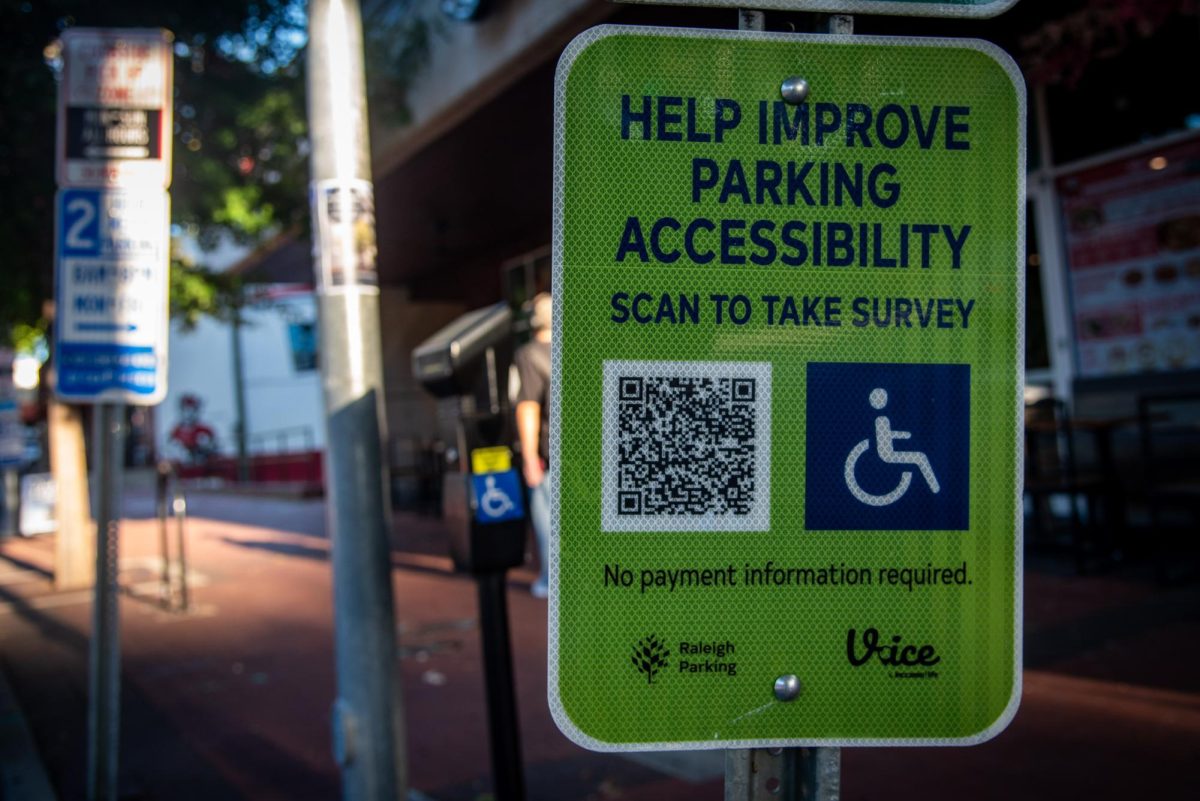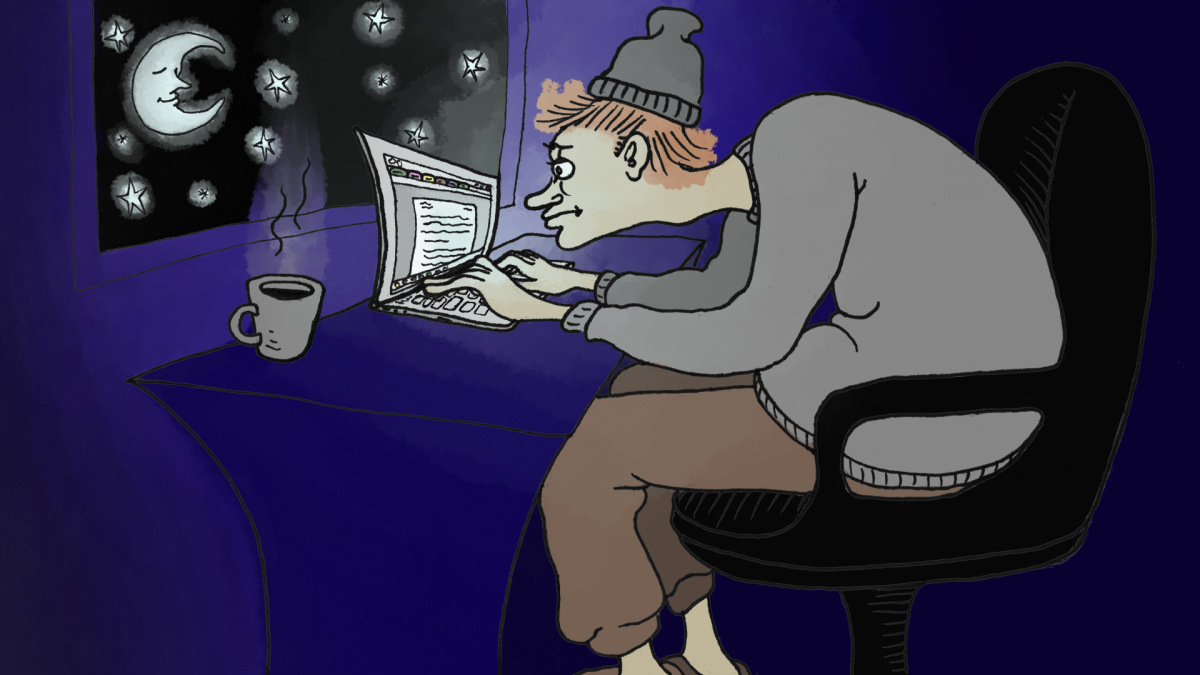Perhaps in the future, hundreds of thousands of dollars of software will be available to you instantly whenever you need them on your own computer for free. About four years ago, that was the goal on which the Virtual Computing Lab was built, and with the power of the Internet, that dream is available to students throughout North Carolina today.
“The objectives are to centralize a computing infrastructure into one place such that labs did not have to be maintained all over campus to supply a computing platform for people to do academic computing — whether it’s homework, or projects,” John Bass, technical director of Centennial Networking Labs, said. Bass has been working with the VCL for nearly a year now.
VCL provides a way for users to reserve a special machine in a data center (imagine a big room with lots of fancy computer equipment), and use it — and any software they request on it — from the comfort of their own homes, on their own computers.
Aaron Peeler is the Director of VCL and manages more than 400 computers that provide virtual computing resources to students.
“Maple is very popular for first-year engineering math students,” Peeler said. “Solid Works, SAS, AutoCAD, Dreamweaver, Photoshop, Contribute, SPSS for CHASS and humanities…” and the list of available software goes on.
“If they were to go out and purchase it all together, it would probably be in the six-figure range,” Peeler said of the software available through VCL. This software is available on short notice, usually in less than five minutes, and about 14 minutes at most. Although VCL is only now approaching maturity, students already use VCL on a regular basis.
John Potts, a sophomore in engineering, is one of these students.
“The first time I used VCL was for Maple,” he said. A student version of Maple 12, from the Maplesoft Web site, starts at $99. “I would only use Maple when I had assignments,” Potts said. Like many students with limited use, he said he found it did not make sense to purchase such expensive software and was able to make use of State’s licenses through VCL. This year, Potts, who runs Windows on his computer, also uses VCL to access Fortran for CSC 112.
Cory Burgett used VCL for the first time on Tuesday night. A freshman in computer science, Burgett stumbled across an algorithm to colorize black-and-white images online. “But it was all in MATLAB code,” he said. MATLAB is one of the many softwares available through VCL. Burgett “logged in, started up MATLAB, and loaded the code.” He said he did not want to pay for a software when he only wanted to test some code.
Rick Carter, a junior in applied math, uses VCL for both Maple and MATLAB. “I live off campus, so it’s easier than going to a lab,” he said. Carter said he even used VCL when he lived on campus. “Sometimes, it was faster to queue a computer on VCL than to go down to the lab, because it was always packed.”
This efficiency has garnered an incredible amount of interest from both the state, and from larger companies as well, both Peeler and Bass said.
N.C. State began to work on VCL about four years ago, Bass said, realizing its potential to be both convenient and save some money. “Originally they thought the cost savings would be around 20 percent in just concentrating all the hardware in one place and being able to support it from there, but it turns out that there are so many hidden costs that the savings were more like 70 percent,” Bass said.
With VCL becoming a successful venture, Peeler said the University has begun to make VCL available to others. Earlier this year, Intel donated 1,000 Blade computers. A Blade is a thin computer without a monitor specially designed for applications like VCL.
These computers are being set up off-site at MCNC, a data center, and will be used for more than just State students.
“We’re trying to move this not only to support NCSU but support of K-12, support of the state-wide UNC system, and lots of other universities and university systems,” Bass said.
Peeler said VCL is no longer just a State project — other North Carolina schools like ECU and N.C. Central University are already part of the project, with even smaller community colleges joining in.
VCL is unique among competing projects because it gives a user a truly clean computer whenever they request a reservation. These clean environments can be delivered to students at a university, or to individuals working on a particular project. “We have close to 50 to 60 production environments, from Maple, to Solid Works, Linux environments, that are available to students to use, from site-wide level down to the college level,” Peeler said.
VCL has also continued to expand in its flexibility. The Blades that are used for VCL can also run a special software that allows two virtual machines on one physical box, doubling the universities’ capacity.
“We harvest, or make use of the Linux and Solaris lab machines when the lab closes at night. So, for example, a lab may close at 6 p.m. at night, and they have 50 machines. At that time, all those 50 stand-alone machines become available through VCL,” Peeler said.
But VCL still has its limitations.
“It is difficult once you get in to the higher level functions of Solid Works. Once you get into 3-D modeling aspects… it becomes cumbersome,” Peeler said. “You wouldn’t necessarily want to [model] a car. Once you’re at that level, you probably need it locally anyway.”
Matt Sumner, a librarian at D.H. Hill Library, also expresses his doubts that VCL can completely replace a computer lab.
“We see [the Learning Commons] as a place where people can collaborate,” he said. “In terms of commuting, it has value when students are here on campus and have time between courses.”
VCL still has to make some improvements before it can be used for everything, but as more and more parties become interested and donate their time and resources, VCL will continue to grow. For now, Bass said the system has already become a valuable tool to students and has saved them and the school hundreds of thousands of dollars.




